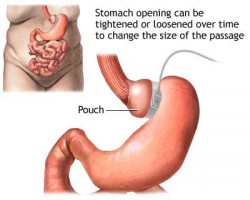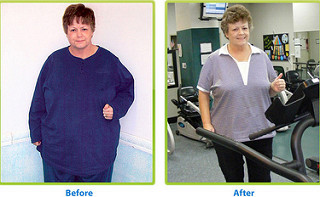Specifically, these flame retardant chemicals may mess with your body's levels of thyroid hormone, estrogen, and insulin—hormones that play important roles in the way your body breaks down or stores fat, explains Gale Carey, PhD, the study's lead author and a professor in UNH's department of molecular, cellular, and biomedical sciences.
Some furniture manufacturers have already started cutting these chemicals from their foam padding. But most haven't. If you're concerned, Carey recommends checking out the Environmental Working Group's tips to avoid flame-retardants. She also advises frequently and thoroughly cleaning your furniture of dust, which is one of the major ways these chemicals get into your system.
You love a good Costco deal

Obesity rates tend to leap in areas around big box stores like Wal-Mart, Costco, BJ's, and Sam's Club, finds research appearing in The Economic Journal. Why? When food is cheap and easy to acquire in large quantities, people tend to eat more of it, the study authors say. They found the same trend in areas filled with fast-food restaurants. Living near a fitness center, on the other hand, has the opposite effect—people in those neighborhoods tend to be slimmer, the study shows.
Your lotion's no magic potion
The same chemicals that make your hand or face cream easy to spread and quick to absorb may also raise your risk for obesity. Multiple studies, including one recent report from the Annual Review of Physiology, have shown these chemicals may disrupt the function of your endocrine system—the group of glands that regulate and release your body's hormones. That disruption may lead to weight gain and metabolic disease, the report concludes. Again, the Environmental Working Group offers a great guide to avoiding endocrine disruptors in personal care products.
You haven't had whole milk since you were a toddler

A recent review from the European Journal of Nutrition found people who eat full-fat dairy are less likely to be obese than low-fat dairy consumers. The review's authors say many of the fatty acids stripped out of low- or-non-fat dairy products may play a role in signaling to the brain that you've had enough to eat. In other words, eating full-fat dairy could help you feel fuller on fewer calories. These fatty acids may also play a beneficial role in the way your body digests and stores fat.
There's something sketchy in your peanut butter
"Emulsifiers"—additives that lend foods a smoother, creamier texture, such as in peanut butter—may change the activity of your gut's microorganisms in ways that increase inflammation and lead to weight gain, shows a study from the journal Nature. The study team looked specifically at carboxymethylcellulose and polysorbate-80, two emulsifiers they say are common in "healthy" reduced-fat or gluten-free products.




